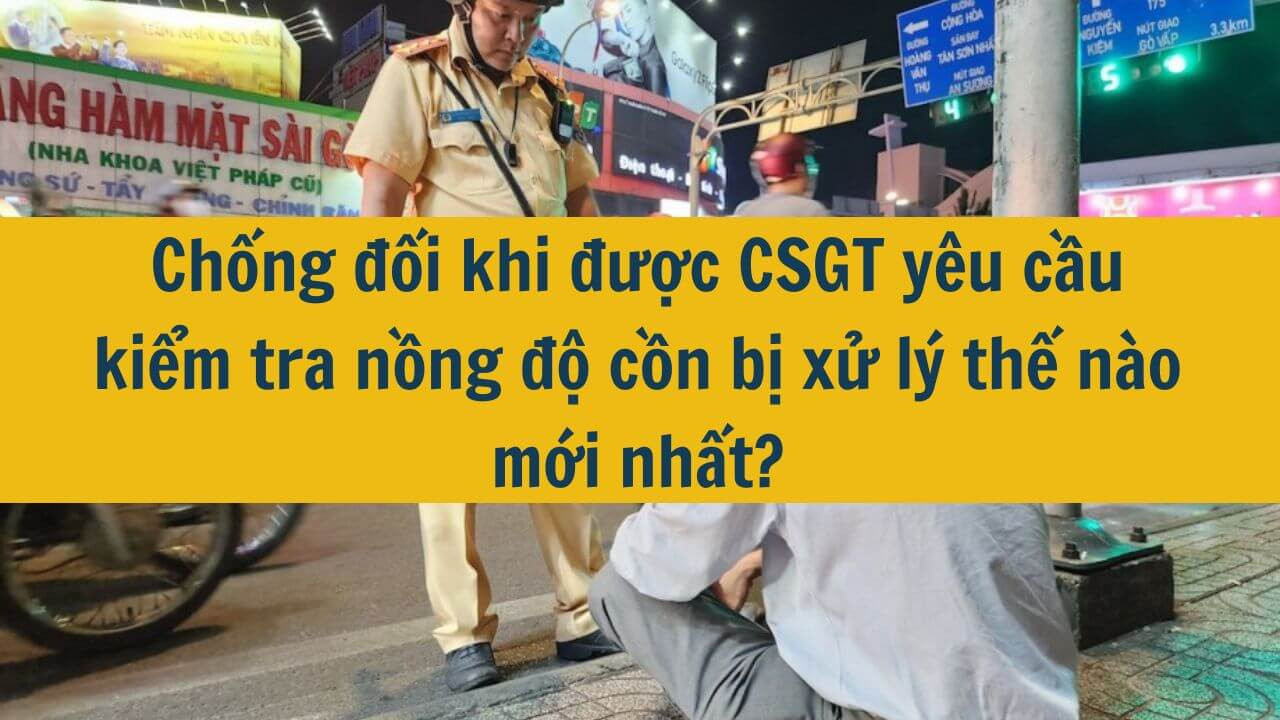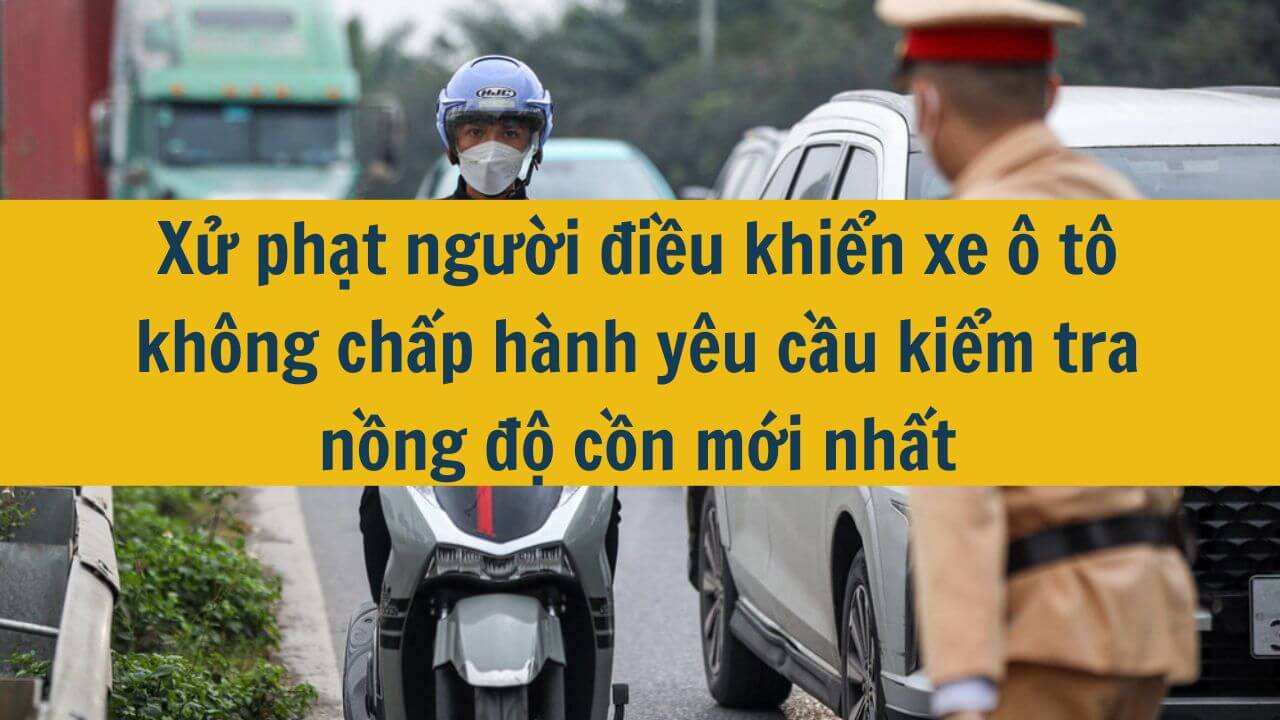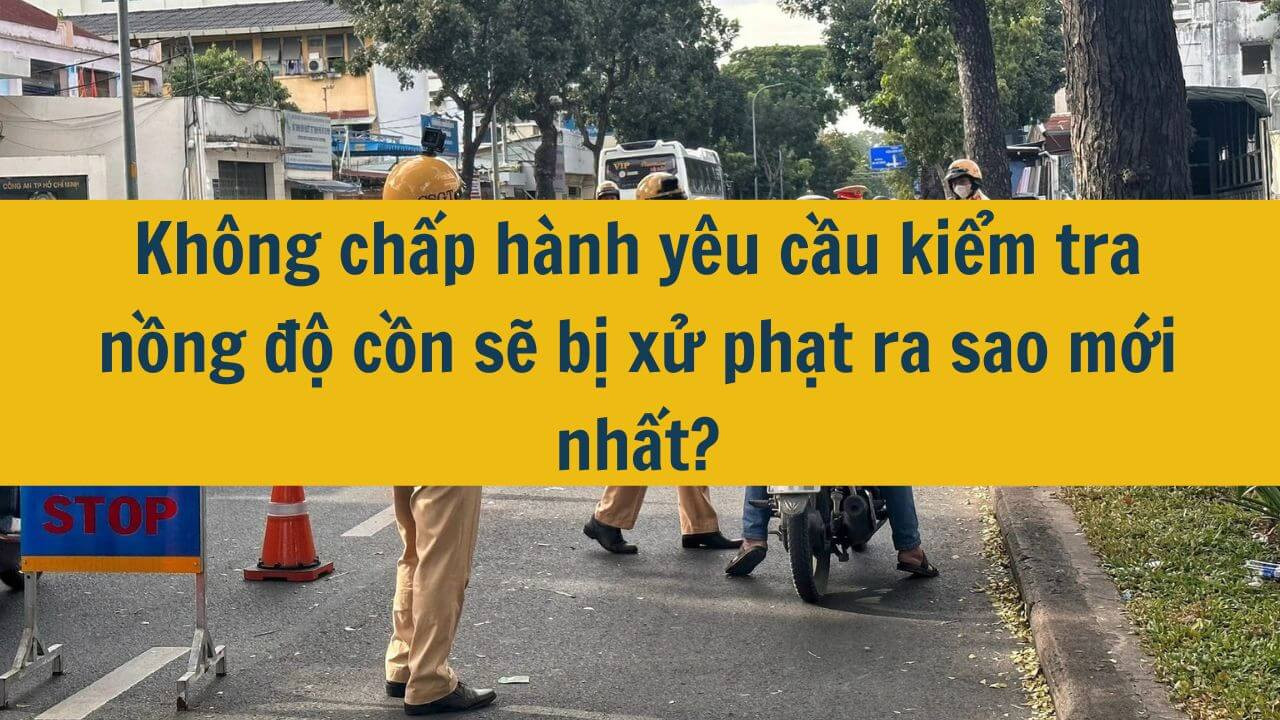 Tìm kiếm
Tìm kiếm
Chương IV Thông tư 18/2023/TT-BTC thu nộp tiền phạt bừ trừ số tiền nộp phạt vi phạm hành chính chênh lệch: Lập dự toán, quản lý, sử dụng và quyết toán kinh phí ngân sách nhà nước bảo đảm hoạt động của các lực lượng xử phạt
| Số hiệu: | 18/2023/TT-BTC | Loại văn bản: | Thông tư |
| Nơi ban hành: | Bộ Tài chính | Người ký: | Võ Thành Hưng |
| Ngày ban hành: | 21/03/2023 | Ngày hiệu lực: | 05/05/2023 |
| Ngày công báo: | 10/05/2023 | Số công báo: | Từ số 693 đến số 694 |
| Lĩnh vực: | Thuế - Phí - Lệ Phí, Vi phạm hành chính, Tài chính nhà nước | Tình trạng: | Còn hiệu lực |
TÓM TẮT VĂN BẢN
Bổ sung trường hợp không tính chậm nộp phạt vi phạm hành chính
Ngày 21/3/2023, Bộ trưởng Bộ Tài chính ban hành Thông tư 18/2023/TT-BTC quy định thủ tục thu, nộp tiền phạt, bù trừ số tiền nộp phạt, biên lai thu tiền phạt và kinh phí từ NSNN bảo đảm hoạt động của lực lượng xử phạt VPHC.
Theo đó, không tính tiền chậm nộp phạt VPHC trong các trường hợp:
- Trong thời hạn được hoãn thi hành quyết định xử phạt vi phạm hành chính;
- Trong thời gian xem xét, quyết định giảm, miễn phần còn lại hoặc cho phép nộp tiền phạt nhiều lần. (quy định mới).
Bên cạnh đó, Thông tư cũng hướng dẫn xác định ngày người nộp tiền phạt đã thực hiện nghĩa vụ nộp tiền phạt như sau:
- Trường hợp nộp tiền phạt bằng tiền mặt trực tiếp: là ngày Kho bạc Nhà nước hoặc ngân hàng thương mại nơi KBNN mở tài khoản hoặc tổ chức cung ứng dịch vụ bưu chính công ích hoặc người có thẩm quyền thu tiền phạt xác nhận trên chứng từ thu, nộp tiền phạt;
- Trường hợp nộp tiền phạt bằng hình thức chuyển khoản: là ngày người nộp tiền phạt nhận được thông báo giao dịch tiếp nhận khoản tiền nộp phạt thành công.
Xem chi tiết tại Thông tư 18/2023/TT-BTC có hiệu lực từ ngày 05/5/2023, thay thế Thông tư 153/2013/TT-BTC và Thông tư 105/2014/TT-BTC .
Văn bản tiếng việt
1. Kinh phí bảo đảm hoạt động của các lực lượng xử phạt được bố trí trong dự toán chi ngân sách nhà nước hằng năm của các Bộ, cơ quan trung ương và cơ quan địa phương.
2. Kinh phí bảo đảm hoạt động của các lực lượng xử phạt của các Bộ, cơ quan trung ương do ngân sách trung ương bảo đảm. Kinh phí bảo đảm hoạt động của các lực lượng xử phạt của các cơ quan, đơn vị thuộc tỉnh, thành phố trực thuộc trung ương do ngân sách địa phương bảo đảm theo phân cấp.
3. Việc quản lý, sử dụng kinh phí ngân sách nhà nước bảo đảm hoạt động của các lực lượng xử phạt phải đúng mục đích, đúng nội dung, đúng định mức, tiêu chuẩn, chế độ theo quy định của Luật ngân sách nhà nước, các văn bản hướng dẫn Luật ngân sách nhà nước và Thông tư này.
1. Các khoản chi chung
a) Chi tuyên truyền, phổ biến pháp luật về xử phạt vi phạm hành chính thực hiện theo quy định tại Thông tư liên tịch số 14/2014/TTLT-BTC-BTP ngày 27 tháng 01 năm 2014 của Bộ trưởng Bộ Tài chính, Bộ trưởng Bộ Tư pháp quy định việc lập dự toán, quản lý, sử dụng và quyết toán kinh phí ngân sách nhà nước bảo đảm cho công tác phổ biến, giáo dục pháp luật và chuẩn tiếp cận pháp luật của người dân tại cơ sở;
b) Chi công tác phí, chi hội nghị sơ kết, tổng kết, tập huấn công tác xử phạt vi phạm hành chính thực hiện theo quy định tại Thông tư số 40/2017/TT-BTC ngày 28 tháng 4 năm 2017 của Bộ trưởng Bộ Tài chính quy định chế độ công tác phí, chế độ chi hội nghị;
c) Việc mua sắm trang thiết bị, sửa chữa công cụ, phương tiện phục vụ trực tiếp cho hoạt động của lực lượng xử phạt thực hiện theo quy định của pháp luật về quản lý, sử dụng tài sản công và pháp luật về đấu thầu;
d) Chi xăng dầu cho phương tiện để kiểm tra, bắt giữ, dẫn giải, bảo vệ đối tượng và tang vật vi phạm; chi thông tin liên lạc, văn phòng phẩm, in ấn tài liệu phục vụ cho hoạt động của các lực lượng xử phạt: Thực hiện theo chứng từ chi thực tế, theo hợp đồng của đơn vị cung ứng. Các nội dung chi nêu trên phải được cấp có thẩm quyền phê duyệt dự toán trước khi thực hiện;
đ) Chi khen thưởng cho các tập thể, cá nhân có thành tích xuất sắc trong công tác xử phạt vi phạm hành chính theo quy định tại Nghị định số 91/2017/NĐ-CP ngày 31 tháng 7 năm 2017 của Chính phủ quy định chi tiết thi hành một số điều của Luật Thi đua, khen thưởng;
e) Chi bồi dưỡng làm đêm, làm thêm giờ theo quy định của pháp luật hiện hành.
2. Các khoản chi đặc thù
a) Chi phí mua tin (nếu có):
- Mức chi mua tin của mỗi vụ việc không quá 10% số tiền xử phạt và tiền bán tang vật, phương tiện tịch thu sung quỹ nhà nước (nếu có) và tối đa không quá 5.000.000 đồng. Riêng đối với xử phạt trong lĩnh vực bảo vệ môi trường, mức chi mua tin của mỗi vụ việc không quá 10% số tiền xử phạt và tiền bán tang vật, phương tiện tịch thu sung quỹ nhà nước (nếu có) và tối đa không quá 50.000.000 đồng. Trong trường hợp mức chi mua tin vượt mức tối đa nêu trên, thủ trưởng đơn vị trực tiếp điều tra, xử lý vi phạm hành chính quyết định mức chi cụ thể trong phạm vi dự toán được cấp có thẩm quyền giao;
- Trường hợp trong quá trình xử phạt vi phạm hành chính không ra quyết định xử phạt, không bán được tang vật tịch thu do tiêu hủy tang vật, chuyển tài sản cho các cơ quan Nhà nước quản lý, sử dụng theo quy định của Luật Xử lý vi phạm hành chính thì chi phí mua tin không quá 10% giá trị tang vật vi phạm hành chính và tối đa không quá 5.000.000 đồng; đối với lĩnh vực bảo vệ môi trường, chi phí mua tin không quá 10% giá trị tang vật vi phạm hành chính và tối đa không quá 50.000.000 đồng. Cách xác định giá trị tang vật vi phạm hành chính theo Điều 60 Luật Xử lý vi phạm hành chính;
- Việc thanh toán chi mua tin phải có đầy đủ chứng từ theo quy định; trường hợp yêu cầu phải giữ bí mật tên người cung cấp tin, việc thanh toán chi phí mua tin căn cứ vào phiếu chi với đầy đủ chữ ký của người trực tiếp chi tiền cho người cung cấp tin, thủ quỹ, kế toán và Thủ trưởng đơn vị trực tiếp điều tra, xử lý vi phạm hành chính. Thủ trưởng đơn vị trực tiếp điều tra, xử lý vi phạm hành chính phải chịu trách nhiệm về sự chính xác, trung thực trong việc thanh toán chi mua tin, đảm bảo chi đúng người, đúng việc và hiệu quả.
b) Chi phụ cấp cho lực lượng trực tiếp xử phạt theo chính sách, chế độ do cơ quan nhà nước có thẩm quyền ban hành (nếu có).
Việc lập dự toán, quản lý, sử dụng và quyết toán kinh phí ngân sách nhà nước bảo đảm hoạt động của các lực lượng xử phạt thực hiện theo quy định của Luật Ngân sách nhà nước và các văn bản hướng dẫn Luật Ngân sách nhà nước. Thông tư này hướng dẫn cụ thể một số nội dung sau:
1. Lập dự toán:
Hằng năm, căn cứ vào kết quả thu, chi liên quan đến xử phạt vi phạm hành chính của năm trước và đánh giá khả năng thực hiện năm hiện hành, các cơ quan, đơn vị được giao nhiệm vụ xử phạt vi phạm hành chính lập dự toán chi bảo đảm hoạt động của các lực lượng xử phạt theo các nội dung quy định tại Thông tư này, gửi cơ quan chủ quản tổng hợp chung trong dự toán ngân sách nhà nước để gửi cơ quan tài chính cùng cấp tổng hợp theo quy định của Luật ngân sách nhà nước và các văn bản hướng dẫn Luật ngân sách nhà nước.
2. Công tác quyết toán:
a) Cơ quan, đơn vị được giao dự toán kinh phí ngân sách nhà nước bảo đảm hoạt động của các lực lượng xử phạt phải mở sổ sách kế toán để ghi chép, hạch toán và tổng hợp trong quyết toán ngân sách hằng năm của các cơ quan, đơn vị theo quy định của pháp luật về ngân sách nhà nước, kế toán, thống kê;
b) Các khoản chi từ ngân sách nhà nước bảo đảm hoạt động của các lực lượng xử phạt được hạch toán, quyết toán vào chương, mục và tiểu mục tương ứng theo quy định mục lục ngân sách nhà nước hiện hành.
ESTIMATION, MANAGEMENT, UTILIZATION AND FINAL ACCOUNTING OF STATE BUDGET EXPENDITURES USED FOR FUNDING ACTIVITIES OF ADMINISTRATIVE PENALTY LAW ENFORCERS
Article 11. Rules of estimation, management, utilization and final accounting of state budget expenditures used for funding activities of administrative penalty law enforcers (briefly called enforcers)
1. Costs and expenses of activities of enforcers are covered by annual state budget expenditures allocated to Ministries, central authorities and local authorities.
2. Costs and expenses of activities of enforcers employed by Ministries and central authorities are covered by the central government’s budget. Costs and expenses of activities of enforcers employed by affiliates or units in provinces and centrally-affiliated cities are covered by the local government’s budget according to the decentralized powers.
3. Due management and utilization of state budget expenditures used for funding activities of enforcers shall ensure that these expenditures serve the right objectives and purposes, conform to the quotas, standards and regulations set forth in the Law on State Budget, instructional documents thereof and this Circular.
Article 12. Objectives and levels of expenditures
1. General expenditures:
a) Propagating and spreading laws on sanctioning of administrative violations in compliance with the regulatory provisions of the Joint Circular No. 14/2014/TTLT-BTC-BTP dated January 27, 2014 of the Minister of Finance and the Minister of Justice, stipulating the estimation, management, use and final accounting of state budget expenditures used for funding the dissemination and education of laws and standards of people’s access to laws at the grassroots level;
b) Allowances for business trips, preliminary and final review meetings, training in sanctioning of administrative violations, subject to the Circular No. 40/2017/TT-BTC dated April 28, 2017 of the Ministry of Finance, prescribing business travel allowances and conference allowances;
c) Procurement of equipment and repair of tools and means directly supporting the activities of enforcers in compliance with laws on management and use of public property and laws on bidding;
d) Petrol and oil used for operating vehicles to inspect, arrest, escort and protect the subjects and exhibits of violations; communication, stationery, printing documents used for activities of enforcers: Based on actual payment vouchers and contracts of suppliers. Before disbursing funds for use as the aforesaid expenditures, cost estimates must be approved by competent authorities;
dd) Rewarding collectives and individuals for their achievements in administratively sanctioning activities in accordance with the Government’s Decree No. 91/2017/ND-CP dated July 31, 2017, elaborating on the implementation of a number of Articles of the Law on Emulation and Commendation;
dd) Extra pay for night work and overtime work in accordance with laws in force.
2. Particular expenditures
a) Expenditures on purchase of leads (if any):
- The level of spending on purchase of a lead about each case of violation does not exceed 10% of the mount of fine plus proceeds from selling exhibits or means of violation confiscated and put into the public treasury (if any), and is restricted to VND 5,000,000. In particular, the level of spending on purchase of a lead about each case of violation arising in the environmental protection domain does not exceed 10% of the mount of fine plus proceeds from selling exhibits or means of violation confiscated and put into the public treasury (if any), and is restricted to VND 50,000,000. Where the level of expenditure on purchase of leads exceeds the maximum limit above, the head of the unit directly investigating and sanctioning administrative violations may decide the exact level of expenditure falling within the budget limit set by a competent authority;
- During the period of enforcement of an administrative penalty, if an administrative penalty decision is not issued; if the confiscated exhibit cannot be sold, subject to the requirements for destruction of exhibits or transfer of the right to manage and use an asset to a state authority in accordance with the Law on Handling of Administrative Violations, the level of expenditure on purchase of a lead does not exceed 10% of the value of the exhibit, and is restricted to VND 50,000,000; in particular, the level of expenditure on purchase of a lead about an administrative violation against environmental protection laws does not exceed 10% of the value of the exhibit of that violation, and is restricted to VND 50,000,000. Methods of valuation of exhibits of violation shall be as defined in Article 60 in the Law on Handling of Administrative Violations;
- Payment of costs and expenses incurred from purchase of leads shall be fully documented in accordance with regulations; where keeping a secret about an informant’s name is required, payment of costs and expenses incurred from purchase of leads shall be based on spending vouchers bearing required signatures of persons directly paying informants, cashiers, accountants and heads of units directly investigating and sanctioning administrative violations. Heads of units directly investigating and sanctioning administrative violations shall be responsible for making accurate and actual payment of costs and expenses incurred from purchase of leads, and ensuring payments to right payees, for correct work and payments made on an effective manner.
b) Allowances paid to enforcers according to compensation and benefits policies adopted by competent state authorities (if any).
Article 13. Estimation and final accounting of state budget expenditures used for funding activities of administrative penalty law enforcers
Estimation, management, utilization and final accounting of state budget expenditures used for funding activities of enforcers shall be subject to the Law on State Budget and instructional documents thereof. This Circular provides detailed guidance on implementation of some of the following regulations:
1. Budget estimation:
Annually, based on results of collection and spending related to sanctioning of administrative violations in the previous year and assessment of capabilities of implementation of the current budget, agencies and units assigned to impose administrative penalties shall make an estimate of expenditures specific to activities of enforcers as defined herein and submit them to a managing body for integration into the general state budget estimate which is then forwarded to the same-level financial agency for compiling purposes in accordance with the Law on State Budget and instructional documents thereof.
2. Final accounting:
a) Agencies and units assigned to estimate the state budget expenditures on activities of enforcers shall set up accounting books to record and account for costs and expenses, and integrate them into their annual state budget in accordance with laws on state budget, accounting and statistics;
b) State budget spending on activities of enforcers shall be recorded and finally accounted for in corresponding chapters, items and sub-items specified in the state budget index in force.
Cập nhật
Bài viết liên quan
Chống đối khi được CSGT yêu cầu kiểm tra nồng độ cồn bị xử lý thế nào mới nhất 2025?

Chống đối khi được CSGT yêu cầu kiểm tra nồng độ cồn bị xử lý thế nào mới nhất 2025?
Năm 2025, việc chống đối khi được Cảnh sát giao thông (CSGT) yêu cầu kiểm tra nồng độ cồn không chỉ vi phạm pháp luật mà còn thể hiện thái độ thiếu tôn trọng các quy định giao thông và gây nguy hiểm cho an toàn công cộng. Các quy định hiện hành đã quy định rõ ràng các chế tài xử lý nghiêm minh đối với hành vi này, bao gồm cả các mức phạt hành chính và các biện pháp xử lý bổ sung. Bài viết này sẽ cung cấp thông tin chi tiết về các quy định pháp luật mới nhất và hậu quả pháp lý đối với hành vi chống đối kiểm tra nồng độ cồn, nhằm nâng cao nhận thức và ý thức chấp hành của người dân khi tham gia giao thông. 06/01/2025Xử phạt người điều khiển máy kéo, xe máy chuyên dùng không chấp hành yêu cầu kiểm tra nồng độ cồn mới nhất 2025

Xử phạt người điều khiển máy kéo, xe máy chuyên dùng không chấp hành yêu cầu kiểm tra nồng độ cồn mới nhất 2025
Năm 2025, người điều khiển máy kéo, xe máy chuyên dùng không chấp hành yêu cầu kiểm tra nồng độ cồn sẽ đối mặt với các chế tài xử phạt nghiêm khắc nhằm đảm bảo an toàn giao thông và trật tự xã hội. Đây là hành vi vi phạm không chỉ ảnh hưởng đến tính mạng của người điều khiển mà còn gây nguy hiểm cho cộng đồng. Bài viết này sẽ phân tích cụ thể các quy định pháp luật và mức xử phạt mới nhất đối với hành vi này, giúp người dân hiểu rõ hơn về trách nhiệm khi tham gia giao thông. 06/01/2025Xử phạt người điều khiển xe ô tô không chấp hành yêu cầu kiểm tra nồng độ cồn mới nhất 2025

Xử phạt người điều khiển xe ô tô không chấp hành yêu cầu kiểm tra nồng độ cồn mới nhất 2025
Năm 2025, việc không chấp hành yêu cầu kiểm tra nồng độ cồn khi điều khiển xe ô tô là hành vi vi phạm pháp luật giao thông, thể hiện sự thiếu trách nhiệm với bản thân và cộng đồng. Trước tình hình gia tăng các vụ tai nạn liên quan đến việc sử dụng rượu bia khi lái xe, pháp luật đã quy định các mức xử phạt nghiêm khắc để răn đe và nâng cao ý thức tuân thủ. Bài viết này sẽ cung cấp thông tin chi tiết về mức xử phạt và các quy định mới nhất liên quan đến hành vi này. 06/01/2025Xử phạt người điều khiển xe máy không chấp hành yêu cầu kiểm tra nồng độ cồn mới nhất 2025

Xử phạt người điều khiển xe máy không chấp hành yêu cầu kiểm tra nồng độ cồn mới nhất 2025
Năm 2025, hành vi không chấp hành yêu cầu kiểm tra nồng độ cồn khi điều khiển xe máy được coi là vi phạm pháp luật giao thông nghiêm trọng. Đây là một trong những nguyên nhân chính dẫn đến tai nạn giao thông, ảnh hưởng lớn đến tính mạng, sức khỏe và tài sản của người dân. Các quy định pháp luật hiện hành đã đưa ra mức xử phạt cụ thể và nghiêm khắc nhằm tăng cường ý thức chấp hành của người tham gia giao thông. Bài viết dưới đây sẽ cung cấp chi tiết về mức xử phạt đối với hành vi này và những quy định mới nhất cần lưu ý. 06/01/2025Không chấp hành yêu cầu kiểm tra nồng độ cồn sẽ bị xử phạt ra sao mới nhất 2025?


 Thông tư 18/2023/TT-BTC thu nộp tiền phạt bừ trừ số tiền nộp phạt vi phạm hành chính chênh lệch (Bản Word)
Thông tư 18/2023/TT-BTC thu nộp tiền phạt bừ trừ số tiền nộp phạt vi phạm hành chính chênh lệch (Bản Word)
 Thông tư 18/2023/TT-BTC thu nộp tiền phạt bừ trừ số tiền nộp phạt vi phạm hành chính chênh lệch (Bản Pdf)
Thông tư 18/2023/TT-BTC thu nộp tiền phạt bừ trừ số tiền nộp phạt vi phạm hành chính chênh lệch (Bản Pdf)